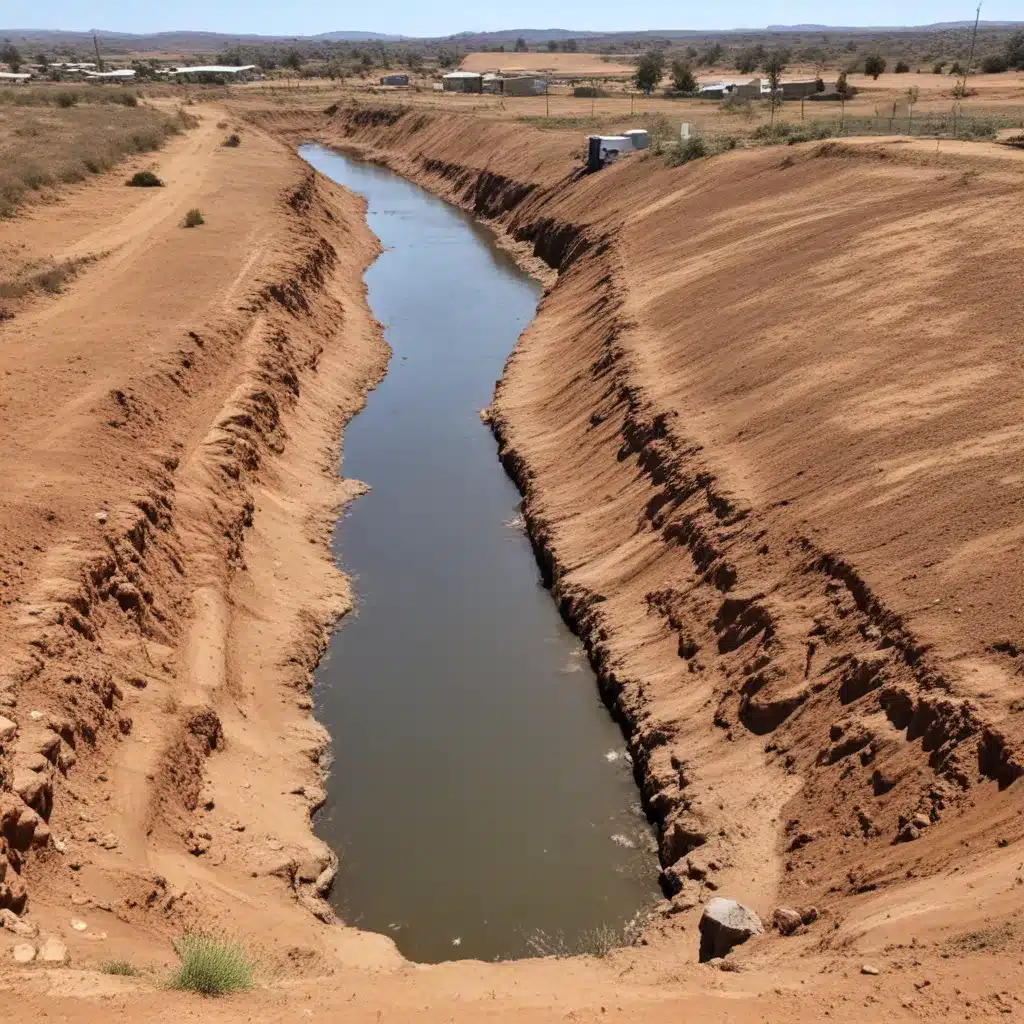
The Long-Enduring Water Crisis in Makhanda: Missed Deadlines and Unmet Promises
Makhanda, a city in South Africa’s Eastern Cape province, has been grappling with chronic water supply issues for over a decade. Despite numerous promises and deadlines, the much-needed upgrades to the city’s water treatment infrastructure have continued to be delayed, leaving residents with an unreliable and often insufficient water supply.
Ongoing Delays in the James Kleynhans Water Treatment Works Upgrade
The James Kleynhans water treatment works, one of the two main water sources for Makhanda, has been undergoing an upgrade since 2015. The initial completion deadline for this project was set for 2018, but it has now been extended for nearly six years, with the latest deadline of July 2024 also missed.
Amatola Water, the implementing agent responsible for the upgrade, had initially set an April 2023 deadline, which was then pushed back to June 2023. As of July 2024, the project is still not complete, with Amatola Water stating that it is currently in the “tail end of phase 2,” involving the testing of various components. The full commissioning of the increased capacity from 10 million liters per day to 20 million liters per day is now expected to be released on 16 July 2024.
Calls for Transparency and Accountability
The ongoing delays have prompted the Makana Citizens Front (MCF) councillor, Philip Machanick, to call for a forensic audit of Amatola Water’s award and management of the James Kleynhans contracts. The MCF has been pushing for greater transparency and accountability from both Amatola Water and the Department of Water and Sanitation, which approved the upgrade project in 2015.
The Dual Water Supply System and Interconnectivity
Makhanda’s water supply system comprises two main water treatment works: the James Kleynhans works and the smaller Waainek works. The James Kleynhans works draws water from the Glen Melville Dam, which is supplied from the Gariep Dam via the Orange-Fish tunnel. The Waainek works, on the other hand, extracts water from rainwater-dependent dams on the west of the town, serving the western part of Makhanda, including the university, hospital, prison, and private schools.
The two systems are interconnected, allowing for the transfer of water to meet the current daily demand of 16 to 18 million liters. However, the reliability and sustainability of this dual system have been called into question, particularly as the effects of climate change continue to impact water resources in the region.
Compounding Challenges and Community Impacts
The water crisis in Makhanda has not only affected the availability and quality of water but has also had far-reaching consequences for the community. Residents have faced frequent water outages, leading to disruptions in daily life, hygiene, and access to essential services. The lack of reliable water supply has had particular impacts on vulnerable groups, such as the elderly, the sick, and those with limited mobility.
Moreover, the water crisis has exacerbated existing socioeconomic disparities, with low-income communities often bearing the brunt of the water shortages. The inability to access clean and consistent water has implications for public health, sanitation, and overall quality of life.
Advocacy and Community Engagement Efforts
In the face of these ongoing challenges, the local community has stepped up to advocate for change and to hold the authorities accountable. Grassroots organizations, such as the Makana Citizens Front, have been vocal in demanding immediate action and a comprehensive solution to the water crisis.
These advocacy efforts have included engaging with the local government, the provincial and national authorities, and the media to raise awareness and call for urgent intervention. Community members have also participated in protests and other forms of civic action to draw attention to the dire situation and to push for meaningful progress.
The Way Forward: Lessons and Recommendations
The water crisis in Makhanda underscores the critical importance of timely and effective infrastructure upgrades, as well as the need for robust water management and governance systems. As the residents of Makhanda continue to grapple with the consequences of this long-standing issue, there are valuable lessons and recommendations that can be drawn:
-
Prioritize Transparent and Accountable Water Management: Ensure that all stakeholders, including the community, have access to information about water infrastructure projects, timelines, and the allocation of resources. Implement robust monitoring and evaluation mechanisms to hold authorities and service providers accountable.
-
Foster Collaborative Partnerships: Encourage collaborative efforts between the local government, the provincial and national authorities, and the community to develop and implement sustainable solutions. Leverage the expertise and resources of various stakeholders to address the crisis.
-
Invest in Climate-Resilient Water Infrastructure: Given the increasing impacts of climate change on water resources, it is crucial to prioritize the development of water infrastructure that can withstand the effects of drought, floods, and other extreme weather events.
-
Promote Water Conservation and Demand Management: Implement comprehensive water conservation measures, such as public awareness campaigns, incentives for efficient water use, and the adoption of water-saving technologies, to reduce the overall demand for water.
-
Enhance Community Engagement and Empowerment: Actively involve the community in decision-making processes, providing platforms for their voices to be heard and their needs to be addressed. Empower residents to become active stewards of their water resources.
By addressing the water crisis in Makhanda through a combination of infrastructure upgrades, transparent governance, collaborative partnerships, and community engagement, the city can work towards a more sustainable and equitable water future. The lessons learned from this experience can inform and inspire similar efforts in other communities facing water-related challenges across South Africa and beyond.

